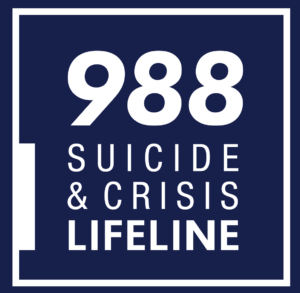Preventing Suicide: Knowing the Warning Signs

Preventing Suicide: Knowing the Warning Signs
September is National Suicide Prevention Awareness Month, and for good reason. Suicide is the second leading cause of death among people aged 10-14, third for those aged 15-24, fourth for those 34-44, and fifth for those 45-54. It is devastatingly high, and something that can be prevented with the right knowledge and tools.
Half the battle in prevention is being aware of signs that someone is struggling. Warning signs are often overlooked. We are all busy and overwhelmed with our own personal lives, and the thought that someone might need some extra help can be hard. It is easy to think someone might just be stressed and those feelings are only temporary, but in some cases, they escalate. You might not be able to fathom the thought that another could possibly hurt themselves or take their life. But, it happens every day.

Suicide impacts all ages, genders, and nationalities. By knowing the warning signs and risk factors we all have the ability to potentially help someone who is at risk of taking their life. At Whole Journey, our counselors and therapists regularly work with clients who are struggling. That is why we put together this list of suicide warning signs to make people more aware of what is concerning.
Warning Signs of Suicide
1.) Talking about wanting to die or hurt themselves — We have all probably been guilty at one point or another of saying “ugh I hate life,” or maybe even “I just wish I was dead.” We might even say it without realizing but when someone says it who also appears down, it can be a major sign that they need help.
2.) Looking for a way out — If you catch someone researching ways to die on the internet, talking about death, or purchasing a gun or other self-harming tools this is a big red flag.
3.) Talking about having no reason to live or feeling hopeless — When a person genuinely feels like they have no reason to live, they need help changing that perspective and getting the care they need.
4.) Talking about feeling trapped or saying they are in unbearable pain – If someone truly feels this way, it is uncomfortable and they want it to stop. There are many different types of therapy that can help address these feelings and create change in a person’s life. There is always a way out that doesn’t include suicide.
5.) Increased use of drugs or alcohol — People who commit suicide are generally in a lot of emotional pain. They will do anything they can to numb their emotions. Often this starts with excessive drug or alcohol use.
6.) Saying they are a burden to others — Saying things like “It would be better if I wasn’t here,” “It’s all my fault,” or “I should just go and die” are all signs that someone needs help. Many people feel like their troubles are so big that things would be easier if they weren’t around anymore. They feel like suicide is doing a favor for others, which is very far from the truth. No one wants to lose a friend or family member to suicide.
7.) Acting anxious, agitated, or reckless — If someone has no respect for their life or feels like they won’t be around much longer, they are more willing to take dangerous risks.
8.) Sleeping too much or too little — Depression is often a risk factor for suicide. It leaves people feeling hopeless and sad. They may want to stay in bed with no energy or have trouble sleeping because they are always thinking or worrying about things.
9.) Withdrawing or isolating from others — If someone is thinking about suicide they don’t want to get close to anyone. They want to be alone or feel like they should be alone because they are too much trouble for others. People need people. Isolation is not healthy. If you see someone beginning to withdraw, consider sitting with them or stopping by.
10.) Showing rage or experiencing extreme mood swings — Someone who is angry all the time or has large fits of rage is probably not feeling too great about life. They are mad at the world, others, or themselves. This is a sign that someone should check in with this person.
Risk Factors for Suicide
Mental illness, like depression, can be a major risk factor for suicide. Other risk factors can include substance abuse disorders that can alter the levels of feel-good hormones in the body, and chronic physical illness that leaves a person in pain or feeling like a burden.
Personal history can also play a large role. Traumatic events can be hard to get past, leading to suicide. This is why veterans or victims of violent crimes are at high risk. Family history of suicide can make the thought more available to a person, whereas it might not have been otherwise. Other factors can include loss of relationships that leave people feeling lost and like “life cannot go on,” easy access to lethal means, and lack of social support and isolation.
What do you do if you are concerned someone may be suicidal?
If you suspect someone may be at risk for suicide, the first thing you can do is let them know you care about them and that you are there for them. Be a caring shoulder to cry on. Encourage them to sit with you. Talk to them. They may not be willing to talk and they might get angry but deep down inside they will feel better knowing someone is there.
Encourage someone who is struggling to get help from a mental health professional. You can assist in making them an appointment and driving them to it. Other resources include the National Suicide Prevention Lifeline which can now be accessed by dialing 988 from any phone.

There is always an option for care, even for those who don’t feel like they can afford it. Help is available. At Whole Journey, our counselors are knowledgeable and can offer assistance in obtaining the care you or a loved one need. Our counselors are experienced with safety planning and collaborating with other providers to support our clients
The best thing you can do is let the people in your life know that they are loved and their life is so very important.
Ready to begin counseling in Virginia or North Carolina?
Whole Journey works with clients throughout the state of Virginia and North Carolina via our online and telehealth counseling platforms. We have office locations in Chesapeake, Richmond, and Charlotte. Our counselors are professionally trained in helping people to live healthier, happier lives. We want to see you thrive. Call our Virginia offices at 757-296-0800 or our North Carolina office at 980- 209-9805 to schedule an appointment.



